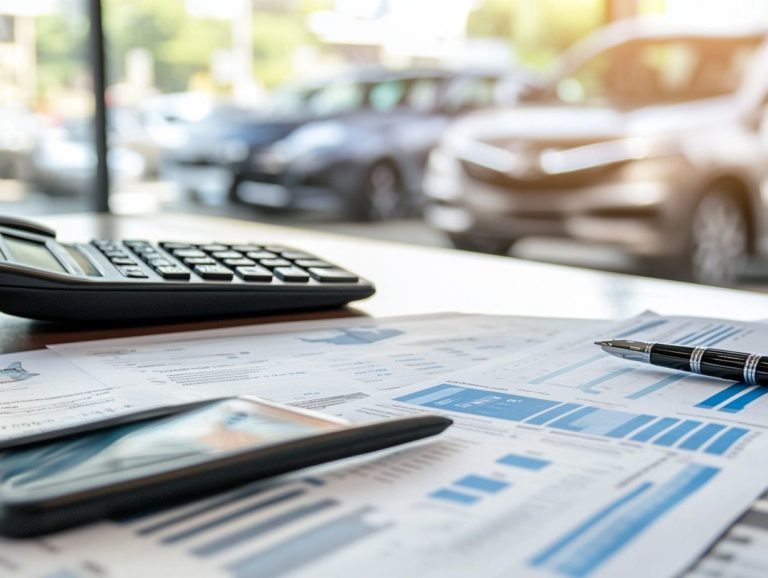Understanding the Tax Benefits of Car Leasing
Car leasing presents an appealing option for discerning drivers like yourself, offering remarkable flexibility and lower monthly payments compared to traditional purchasing.
One of the often-overlooked perks of leasing is the potential tax benefits that can enhance your financial strategy.
This guide will walk you through the essentials of car leasing, from its definition to the process involved and the tax implications at play. You’ll discover how to qualify for deductions, maximize your savings, and thoughtfully assess any potential drawbacks before you commit.
Whether you re a leasing novice or seeking to refine your approach, this comprehensive overview will equip you with the insights you need.
Contents
- Key Takeaways:
- Overview of Car Leasing
- Tax Benefits of Car Leasing
- Qualifying for Tax Deductions
- Maximizing Tax Savings with Car Leasing
- Potential Drawbacks of Car Leasing
- Frequently Asked Questions
- What are the tax benefits of car leasing?
- How can I deduct my car lease payments on my taxes?
- Is the entire lease payment deductible on my taxes?
- Can I deduct my personal use of a leased car on my taxes?
- What other tax benefits are there for car leasing?
- Do tax benefits apply to both individuals and businesses for car leasing?
Key Takeaways:
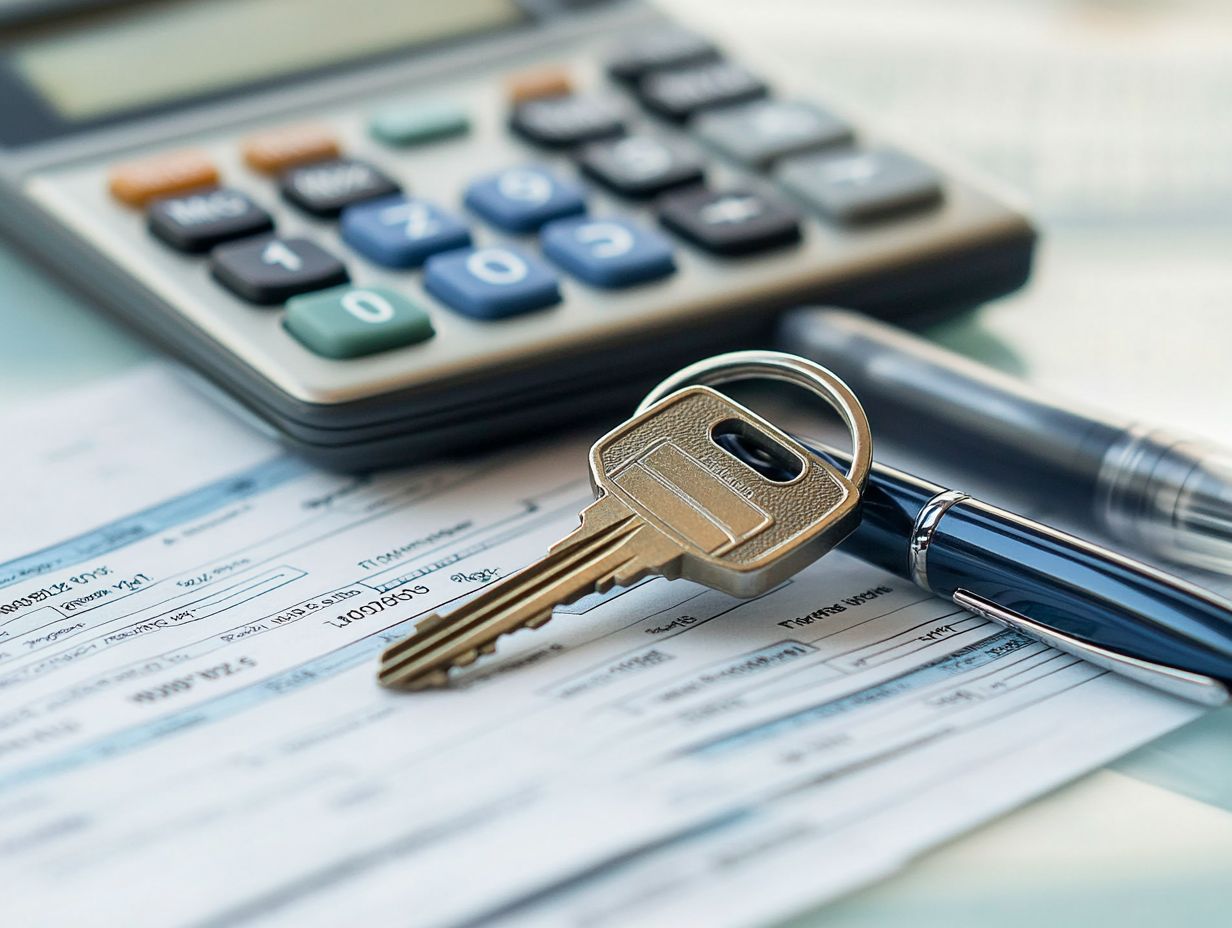
- Leasing a car can provide tax benefits through expenses you can write off and potentially lower tax implications compared to buying a car.
- To qualify for tax deductions, certain criteria must be met when leasing a car.
- Maximizing tax savings with car leasing can be achieved through strategic planning and following expert tips. It s also important to consider potential drawbacks and risks.
Overview of Car Leasing
Car leasing has become a savvy financial strategy for you as a business owner or self-employed professional aiming to secure a reliable vehicle without the substantial upfront costs that come with buying a car. This method enhances your cash flow management and reduces operating expenses, while granting you access to the latest models and features.
It s an appealing alternative for anyone focused on optimizing their business expenditures.
Tax Benefits of Car Leasing
Grasping the tax benefits of car leasing is essential for business owners and self-employed professionals, as it can profoundly influence your overall financial strategy.
These advantages typically encompass tax deductions on lease payments and actual expenses, all of which must adhere to rules set by the Internal Revenue Service (IRS) to ensure you maximize your savings.
Deductible Expenses
When you lease a car for business purposes, a range of deductible expenses can significantly lower your taxable income, resulting in noteworthy savings. Key deductions include your lease payments, maintenance coverage, and any actual expenses incurred while using the vehicle.
Beyond these primary deductions, it s important to recognize that costs associated with fuel, insurance premiums, and even registration fees can also be deducted.
To ensure you claim these deductions accurately, meticulous documentation is essential. Keeping thorough records and receipts for every transaction not only substantiates your claims during tax filings but also provides a clearer overview of your expenses. This diligence helps you stay compliant with IRS regulations, significantly reducing the risk of audits or disputes over claimed amounts.
By staying organized and well-informed, you can easily boost your savings by leveraging these benefits.
Leasing vs. Buying: Tax Implications
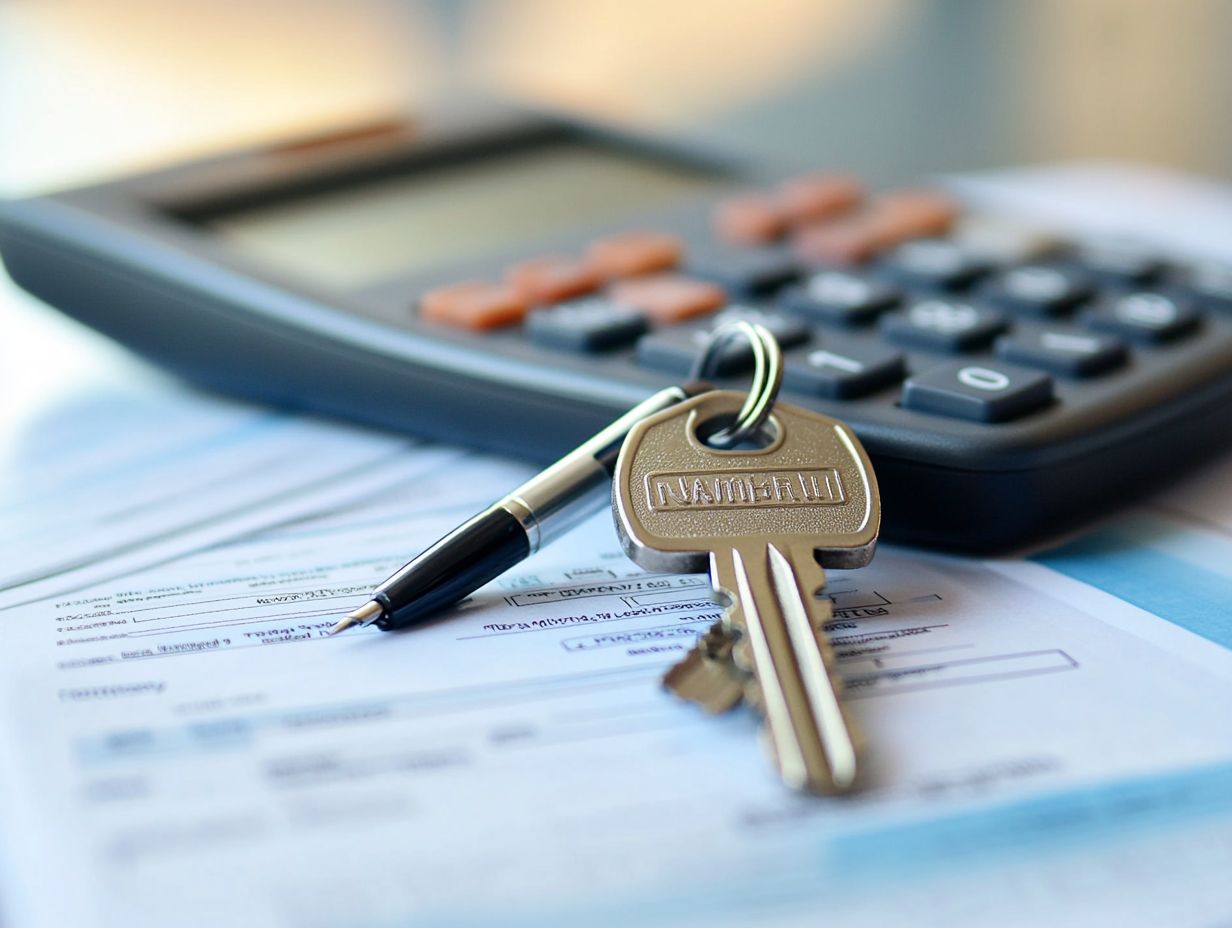
The choice between leasing a car and purchasing one carries significant tax implications that can greatly impact your business’s bottom line. Leasing offers immediate tax savings with lower upfront costs, while buying lets you benefit from depreciation deductions, especially for luxury vehicles under IRS regulations.
Leasing typically allows you to deduct monthly payments as a business expense, which helps with cash flow management. For example, if you lease a vehicle for $400 a month, that amount is usually deductible, enhancing your firm’s liquidity.
On the flip side, purchasing a vehicle provides financial advantages through the ability to write off depreciation over time. If you buy a car for $30,000, you can claim substantial deductions in the initial years based on the vehicle’s declining value.
Therefore, examining both options in light of your tax obligations and overall financial strategy will enable you to make more informed decisions.
Qualifying for Tax Deductions
Qualifying for tax deductions related to leasing a car involves a nuanced understanding of specific criteria and IRS regulations that govern eligibility. As a business owner or self-employed individual, it s essential for you to ensure that your vehicle usage aligns with these requirements.
Doing so will allow you to effectively take advantage of potential tax deductions.
Criteria and Requirements
To qualify for tax deductions related to car leasing, you must meet specific criteria set by the IRS. This includes adhering to mileage limitations and documenting business-related use.
Understanding these requirements is crucial for maximizing your tax benefits. This involves accurately tracking the total miles driven for business versus personal use, as this distinction is pivotal.
You should maintain detailed logs and receipts to substantiate your claims. Neglecting this can result in disallowed deductions and potential penalties.
Being aware of the fair market value of the leased vehicle at predetermined intervals can also influence your eligibility for deductions.
By staying informed and organized, you not only comply with IRS regulations but also ensure you fully capitalize on the tax savings associated with your leased vehicles.
Maximizing Tax Savings with Car Leasing
Maximizing tax savings through car leasing requires employing a range of strategies and insightful tips designed to enhance your tax deductions while bolstering your overall business income.
By adopting effective practices and keeping meticulously organized records, you can significantly elevate your financial efficiency and make the most of your resources.
Strategies and Tips
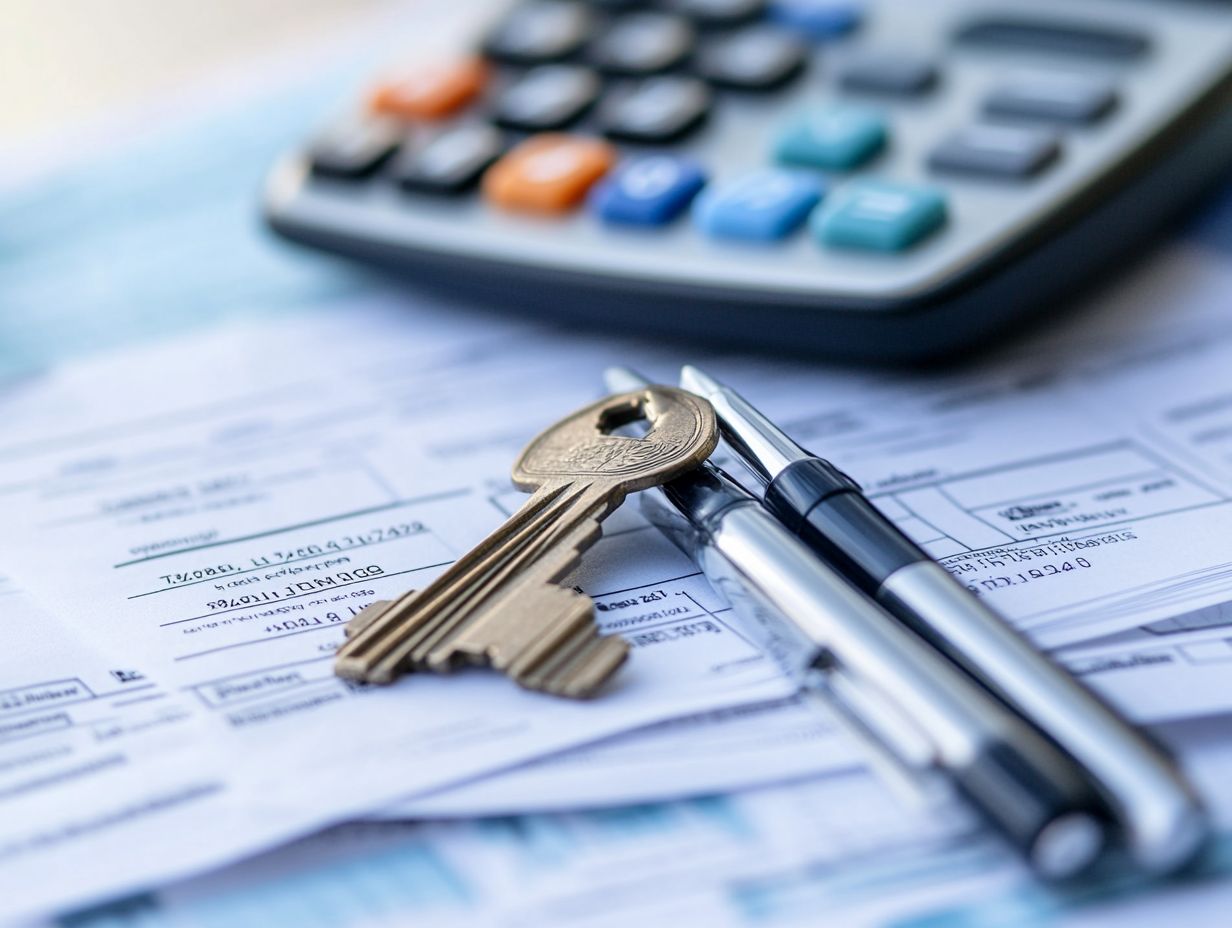
Adopting effective strategies can greatly enhance your tax savings when leasing a car, allowing you to optimize your financial outcomes. Key strategies include selecting vehicles with maintenance coverage, understanding costs for running the car, and leveraging tax deductions.
By choosing a vehicle known for its reliability and low maintenance costs, you can enjoy peace of mind while potentially reducing your overall expenses. Keeping accurate records of all car-related expenditures, such as fuel and repair costs, creates a clearer picture when it comes time to file taxes, allowing you to maximize your deduction claims.
Incorporating mileage tracking apps can make this process easier. These tools enable you to effortlessly log your business-related travel and ensure you don t miss any deductible opportunities.
With these strategies in place, you can shift your financial landscape favorably as you work to minimize tax liabilities.
Potential Drawbacks of Car Leasing
Car leasing presents a wealth of advantages, yet it also carries potential drawbacks that you, as a business owner or self-employed individual, should weigh with care before reaching a decision.
Understanding these risks can empower you to make smarter financial decisions, particularly when assessing their long-term effects on your business expenses and cash flow.
Considerations and Risks
When you’re considering car leasing, it’s crucial to be aware of several risks and considerations, especially concerning mileage limitations and the costs for running the car tied to the lease. These elements can significantly affect your overall financial outlook and the tax benefits you may derive from leasing a vehicle.
Understanding the intricacies of lease agreements, including maintenance responsibilities and insurance requirements, is essential. Regular maintenance can lead to unexpected expenses, and exceeding mileage limits might result in extra fees that could diminish the advantages of leasing altogether.
You should also evaluate how different lease structures can impact your cash flow and the depreciation-related tax deductions. To navigate these potential pitfalls, engage in strategic budget planning, consult with financial advisors, and conduct comprehensive research on leasing terms.
This approach will empower you to make informed decisions that align with your operational needs.
Frequently Asked Questions
What are the tax benefits of car leasing?
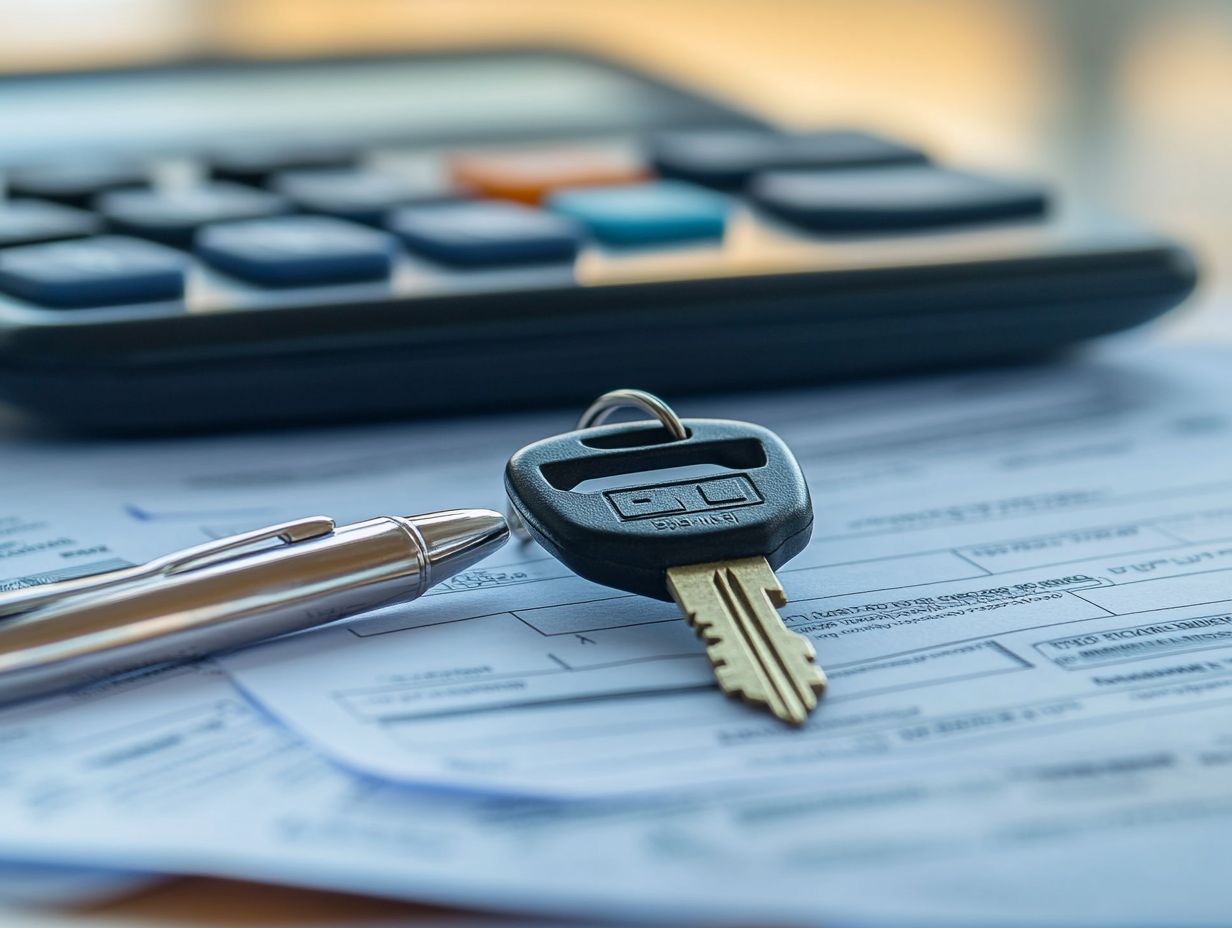
Unlock amazing tax benefits when you lease a car! You can potentially subtract costs for lease payments, mileage, and business use.
How can I deduct my car lease payments on my taxes?
If you use the car for business, you can subtract part of your lease payments as a business cost on your tax return.
Is the entire lease payment deductible on my taxes?
No, only the part of the lease payment used for business is deductible.
Can I deduct my personal use of a leased car on my taxes?
No, you can only deduct the part of the car’s use that is for business.
What other tax benefits are there for car leasing?
You can also subtract costs for maintenance and repairs on the leased vehicle.
Do tax benefits apply to both individuals and businesses for car leasing?
Yes! Both individuals and businesses can take advantage of tax benefits for leasing, as long as the car is used for business.


